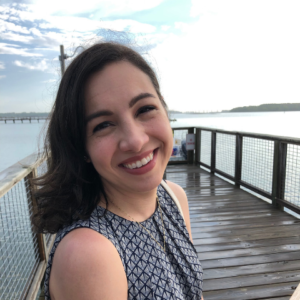Written by IOCDF Advocate Alexandra Reynolds
 OCD therapy was not the place I imagined, and coming out as bisexual and gender fluid, I didn’t think my sexual and gender identities mattered in or affected my treatment. Having already experienced coming out to less than affirming therapists, I was too afraid to broach the subject again. In the past, the subject of my queerness seemed to make my therapists uncomfortable. My coming out was met with either avoidance, being told that bisexuality is a phase and I’d need to pick who I’m attracted to, or an attempt to fix me by making me realize I’m heterosexual. None of this helped me and, in fact, left my mental health worse than when I’d begun therapy. I often quit treatment shortly after coming out only to spiral into OCD, depression and denial of my sexual identity. I knew I was bi, but felt that if all of these therapists didn’t accept my sexual identity, maybe there really was something wrong with being bisexual.
OCD therapy was not the place I imagined, and coming out as bisexual and gender fluid, I didn’t think my sexual and gender identities mattered in or affected my treatment. Having already experienced coming out to less than affirming therapists, I was too afraid to broach the subject again. In the past, the subject of my queerness seemed to make my therapists uncomfortable. My coming out was met with either avoidance, being told that bisexuality is a phase and I’d need to pick who I’m attracted to, or an attempt to fix me by making me realize I’m heterosexual. None of this helped me and, in fact, left my mental health worse than when I’d begun therapy. I often quit treatment shortly after coming out only to spiral into OCD, depression and denial of my sexual identity. I knew I was bi, but felt that if all of these therapists didn’t accept my sexual identity, maybe there really was something wrong with being bisexual.
The guilt and shame that I already felt about being bi coupled with the shame of being invalidated by professionals who were supposed to be safe led me to hide behind my privilege and live life passing as a cis hetero female in cis hetero relationships. It felt easier, but also inauthentic and often led to periods of depression or anxiety and rumination over feeling unable to express parts of me I felt to be innate and inextricable from who I am. I didn’t realize that the toll on my mental health was something very real. (Research shows that LBGTQ individuals who are open about their identities suffer less symptoms of depression and anxiety than their closeted peers. I blamed OCD and Major Depression for all of my struggles without understanding that mental health is intersectional.) This means that our mental health is tied to our other identities, including our sexual and gender identities, and they can and often do affect each other. Coming out is a highly personal decision that has many pros and cons that must be weighed carefully. It isn’t always feasible or safe to do so, but it’s my belief that if any space should be safe to come out, it’s therapy.
While my past experiences with therapists were not positive, I eventually got very lucky and stumbled upon an LBGTQ+ affirming OCD therapist. An LBGTQ+ or queer affirming therapist can be defined as one who takes a positive and affirming view of LBGTQ+ identities and individuals and acknowledges and addresses the systemic inequalities, stigma and discrimination LBGTQ+ individuals face. Coming out to this therapist was night and day from my past experiences. I was met with warm affirmation and acceptance of who I am. Our therapeutic relationship didn’t change or become uncomfortable. In fact, it deepened and felt more authentic. More importantly, he didn’t tip-toe around or ignore my sexual and gender identities. He worked them into treatment and made certain to take them and their effects on my life into consideration during our sessions.
Therapy felt truly safe and my mental health improved significantly. With my therapist’s affirmation and positive acceptance of my identities, the shame, denial, and stigma that I felt surrounding being bi and gender fluid lessened. I felt more confident in both expressing and exploring my identities. Today, I feel happier, more confident, and closer to my authentic self than I ever have and I fully believe it’s because I had a safe and affirming therapist to help me see that my sexual and gender identities are not taboo or something to be fixed. That, in fact, they are beautiful parts of my entire being.
I want to again acknowledge the great privilege I have in being out as an AFAB Non-Binary individual who is married to a cis hetero male. I can and do often pass as being a cis-gendered and heterosexual female. It is my hope that through my advocacy with the IOCDF’s LBGTQ+ Special Interest Group, I shed light on why it’s so important to have more LBGTQ+ affirming therapists. Being LBGTQ+ isn’t a problem, a disorder or a phase. It’s a part of who I am and it’s something that can be a source of resilience and joy when it’s affirmed by a kind and compassionate therapist. Every single member of the LBGTQ+ community deserves to be met with the same acknowledgment and affirmation I was. We all deserve to be seen and feel safe in therapy.
If you or a loved one are seeking an LGBTQ+ affirming therapist who specializes in OCD, please visit our IOCDF Resource Directory and select “LGBTQ+ Affirming” under the “Specialty” tab to find help in your area.

I am looking for a LGBTQ therapist who specialises in OCD and has a particular specialism in SO OCD. I am really struggling to find one.